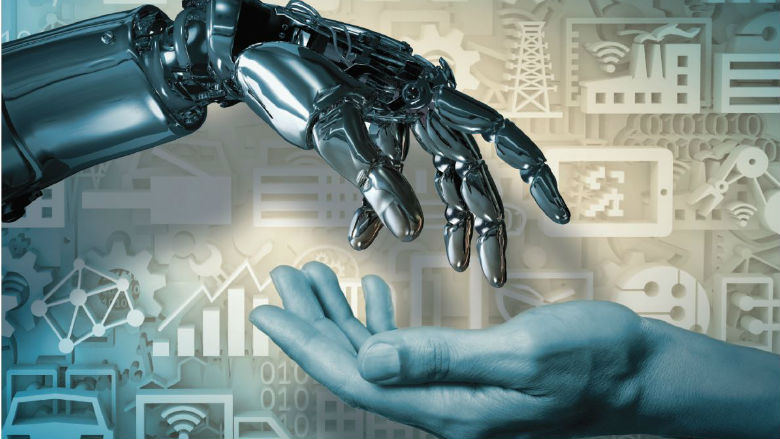Log In
Follow me
-
Recent posts
- Preface of my book “Ecological Ignorance in Mainstream Economics”
- An Anatolian tale: Wild Drummer of the Apple Village
- The man who never asked inconvenient questions
- Important economy lesson that I learned from aquariums
- The Song of Ecological Ignorance
- My Book: Ecological Ignorance in Mainstream Economics
- My motivation letter for a job about infectious disease dynamics
- What does “sustainable wellbeing economy for all” require?
- Natural Aquariums for Ecological Literacy and Ecosystem Modeling
- My PhD thesis: Why does mainstream economics ignore ecology?
- 5 Essential Questions for all Departments of Economics
- Economics or Anthropology?
- Most Popular Myths of Mainstream Economics
- Meine Standartfragen an Personalvermittler
- Why I don’t want to work for the finance industry
Most popular
Follow @ twitter
Facebook
Categories
- Miscellaneous (6)
- Natural aquariums (10)
- Science and philosophy (5)
- Sustainable life (22)
Recent comments
- tuncali on Natural Aquariums for Ecological Literacy and Ecosystem Modeling
- tuncali on Preface of my book “Ecological Ignorance in Mainstream Economics”
- tuncali on Ecosystem Mutilation and Patching Business
- tuncali on My Book: Ecological Ignorance in Mainstream Economics
- tuncali on My PhD thesis: Why does mainstream economics ignore ecology?
- tuncali on Preface of my book “Ecological Ignorance in Mainstream Economics”
- tuncali on What does “sustainable wellbeing economy for all” require?
- tuncali on Preface of my book “Ecological Ignorance in Mainstream Economics”
- tuncali on Natural Aquariums for Ecological Literacy and Ecosystem Modeling
- tuncali on What does “sustainable wellbeing economy for all” require?
- tuncali on The man who never asked inconvenient questions
- tuncali on Preface of my book “Ecological Ignorance in Mainstream Economics”
Tag Cloud
- academy
- akademie
- anthropology
- aquarium
- book
- cichlids
- clean-tech
- degrowth
- ecoliteracy
- ecological economics
- ecological ignorance
- ecological literacy
- ecology
- economic myths
- economics
- economy
- ecosystem
- ecosystem mimicry
- ecosystem mutilation
- education
- environment
- ethik
- evil of mediocrity
- evolution
- fairy tale
- finance
- ideology
- industrial education
- job
- low-maintenance
- low-tech
- natural aquarium
- paradigm
- PhD
- philosophy
- rethinking economics
- story
- sustainability
- tale
- technology
- umwelt
- video
- well-being
- wellbeing economy
- wild drummer
Why does mainstream economics ignore ecology? (PhD progress report 3, August 2019)
Posted in Sustainable life
Tagged academic, ecological ignorance, ecology, economics, economy, ideological blindness, industrial paradigm, PhD
10 Comments
What is Innovation?

In this blog article, I will analyse the meaning of innovation by the example of a medical pill against headache, first from the narrow perspective of industrial paradigm, and then from the broad perspective of ecological paradigm.
Let’s see some mainstream definitions of innovation:
“Innovation in its modern meaning is a new idea, creative thoughts, new imaginations in form of device or method. Innovation is often also viewed as the application of better solutions that meet new requirements, unarticulated needs, or existing market needs.” Source: Wikipedia
“The process of translating an idea or invention into a good or service that creates value or for which customers will pay. To be called an innovation, an idea must be replicable at an economical cost and must satisfy a specific need.” Source: Business Dictionary
Assume, I have developed a medical pill which is effective against a certain kind of headache, with no or negligible side-affects. Can I call it an innovation?
No, not yet; I need to first do a market research to check. If there is a similar pill, I can’t call it an innovation.
Assume, I have done a market research thoroughly, and ascertained that there is not a similar pill produced by any other person or organisation. Can I now call it an innovation?
Continue reading
Posted in Sustainable life
Tagged ecology, economics, economy, ideology, innovation, paradigm, philosophy, technology
3 Comments
What is industrial paradigm?

Industrial paradigm is the human-centered, mechanistic and reductionist worldview that dominates science, education and especially economic thought since industrial revolution.
For the industrial paradigm, we humans are not a part of the nature; we are outside the realm of nature.
We stand above all other animals and plants; we are created to dominate and reshape the nature which is a place of wild chaos, barbarism and misery without humans. The world is created for us humans. This means, nature can easily be sacrificed for the comfort, convenience and progress of humans.
For the industrial paradigm, nature is not an active producer; nature is only a passive raw material resource, a passive infrastructure of life, and a passive dumping ground with a certain capacity for endurance and recycling. In other words, nature is not a living ecosystem; it is only a dead, non-living resource without inherent consciousness or intelligence.
There is only one kind of producer: Humans. Everything else is only resource.
Nature is for the industrial paradigm a place of wild and disordered entity that must be tamed and ordered according to the tastes and preferences of civilized humans.
Continue reading
Posted in Sustainable life
Tagged ecology, economics, economy, ideology, industry, paradigm, worldview
12 Comments
Aquariums and Ecosystem Mutilation Business

Thanks to my aquarium hobby, I became aware of ecosystem mutilation business already as I was a 11 year-old boy, though I couldn’t name it then very clearly.
Ecosystem mutilation business is about destroying self-sufficient and sustainable ecosystems in order to create new needs and necessities, and therefore new profit and monopolization opportunities for greedy companies.
A typical example is destruction or pollution of local water sources that creates excellent business opportunities for selling bottled drinking water. Some of the most profitable sectors like weaponry, agrochemicals (pesticides, herbicides), GM seeds (GMOs), pharmaceuticals, food, water and investment finance are all in the ecosystem mutilation business.
Because it destroys the solidarity and balance between different species, transforming a sustainable polyculture into an unsustainable monoculture is one of the most common methods of ecosystem mutilation. Planned or not, deliberately or not…
Continue reading
Posted in Natural aquariums, Sustainable life
Tagged aquarium, ecosystem, ecosystem mutilation, monopolization, natural aquarium, sustainability
1 Comment
Ecosystem Mutilation and Patching Business

Maybe you have already heard the term externalities in economics: Externalities are defined as harmful or useful side-effects of economic activities… For example pollution is a harmful side-effect of many industrial production activities.
Most economy books explain the harmful externalities as if they were unintended, unplanned and undesired side-effects. Corporations would certainly avoid these harmful effects if this were technically cheap and easy.
Unfortunately, this is not the whole story. Deliberately or not, many companies profit from the harmful side-effects of past business activities.
For example, industrial pollution creates new profit opportunities for industries like water purification, air purification and pharmaceuticals. Ruthless and unplanned urbanization create new revenue opportunities for many industries, including the toy sector (recreational widgets & gadgets), by simply limiting the outdoor playing grounds of children.
The expansion of the intrinsically unsustainable monocultures in agriculture creates new profit opportunities for global agrochemical corporations like Monsanto, DuPont and Syngenta, that sell tons of agrochemicals like chemical fertilizers, pesticides, herbicides and insecticides.
How could we explain this relationship between destruction and profit? What is the big picture?
Continue reading
Posted in Sustainable life
Tagged agriculture, aquarium, ecology, economics, economy, ecosystem, ecosystem mutilation, externalities, externality
8 Comments
